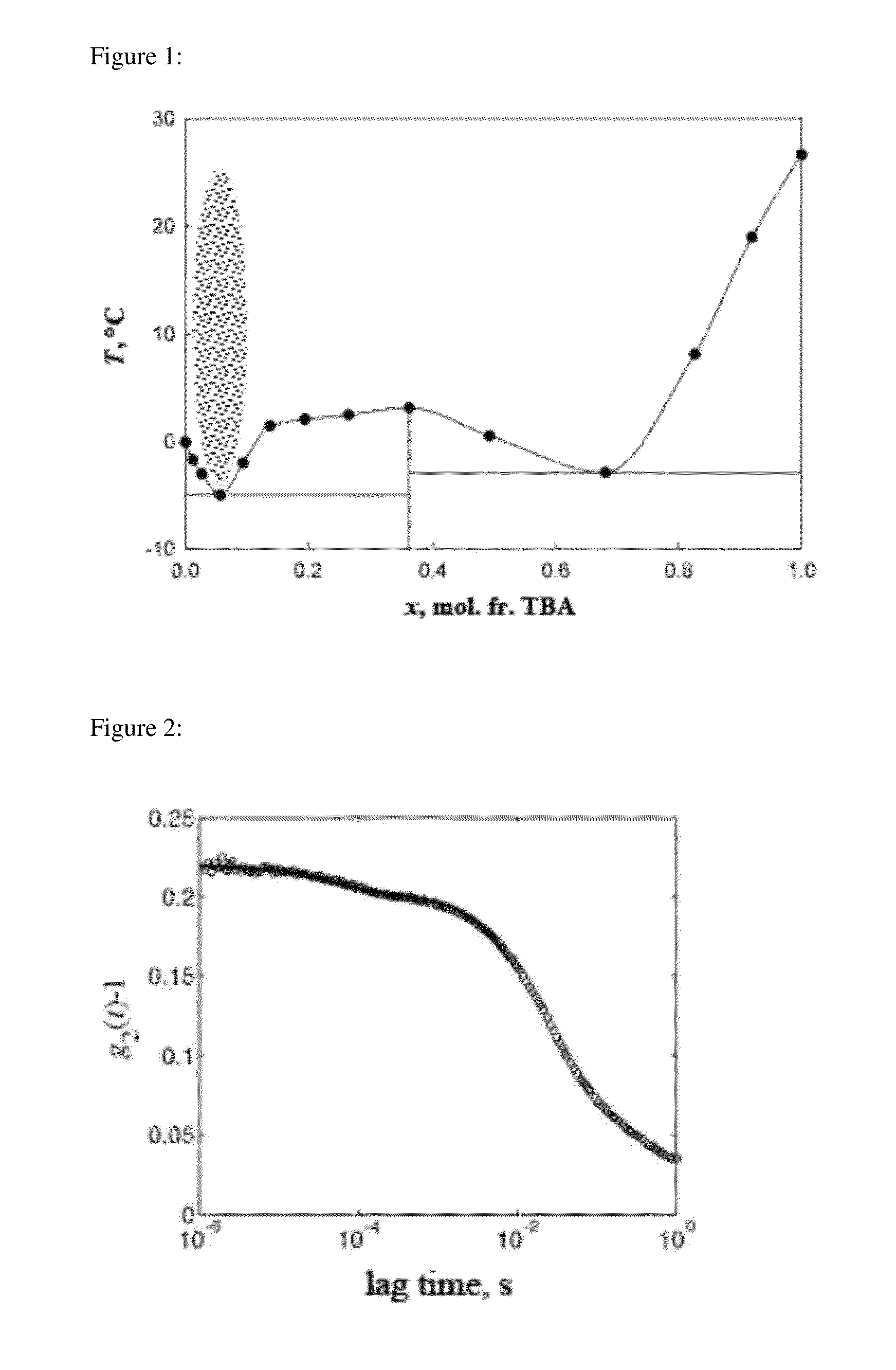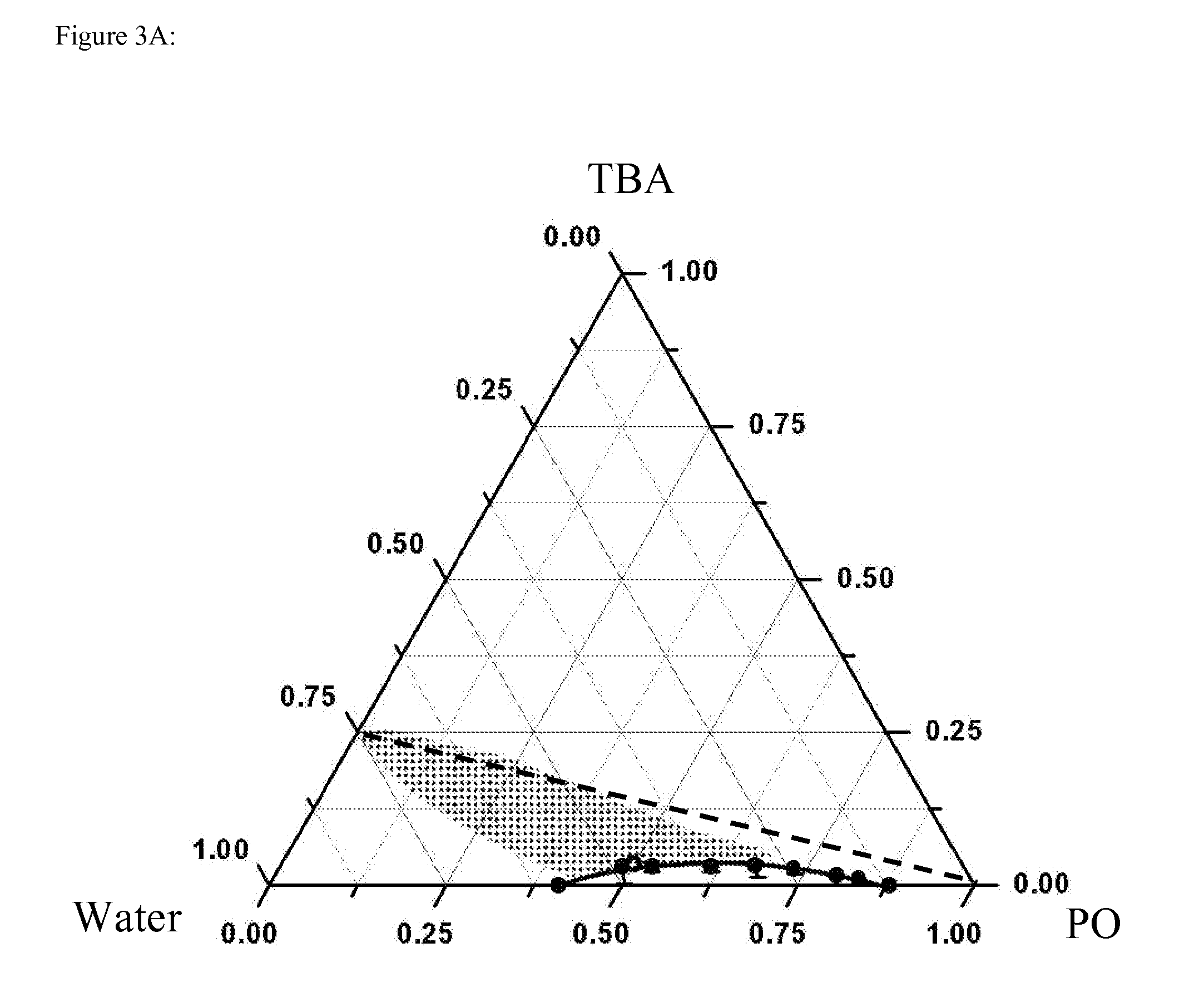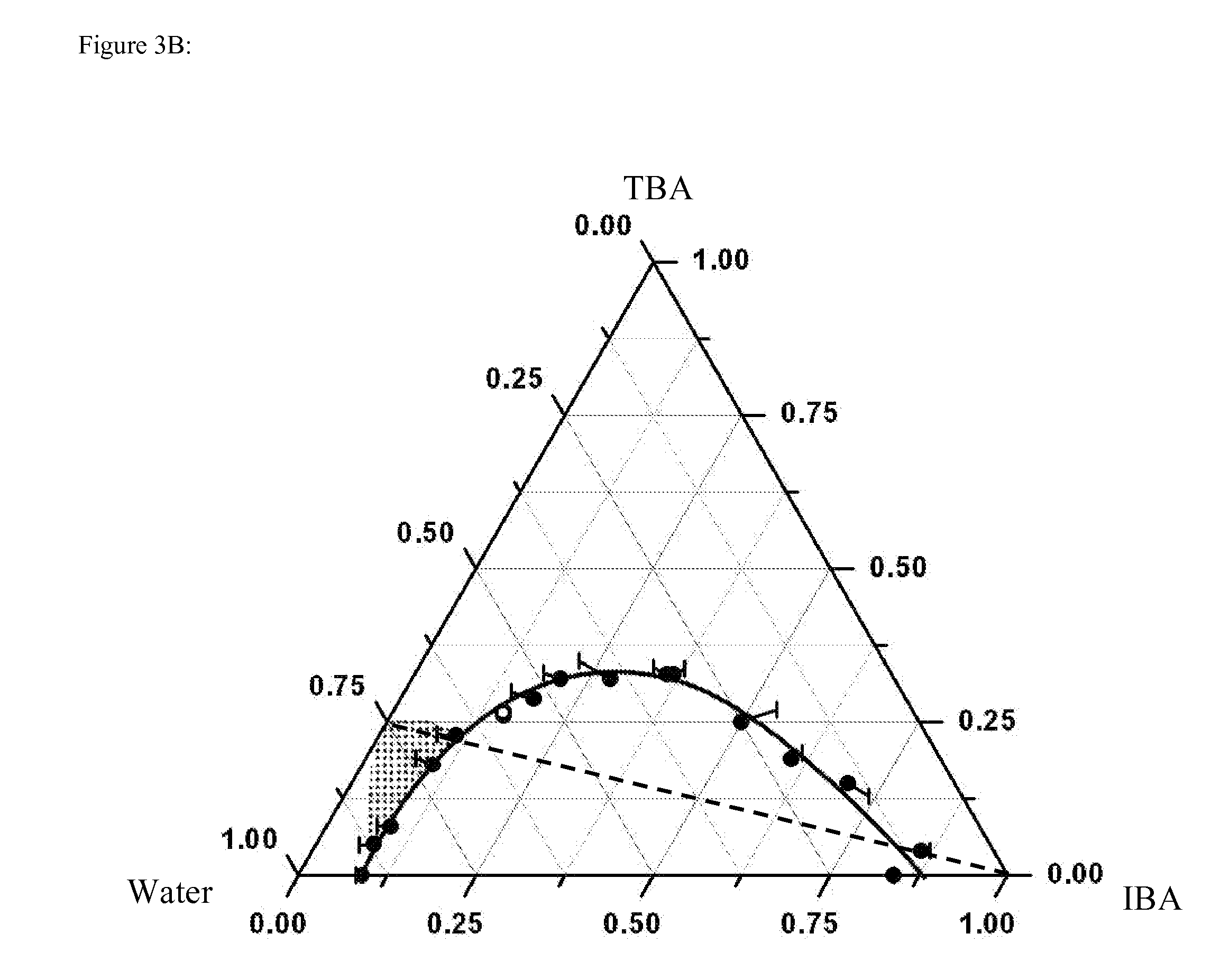Highly stable colloid from aqueous solutions of small organic molecules
a colloidal particle, high-stable technology, applied in the direction of biocide, animal husbandry, pharmaceutical delivery mechanism, etc., can solve the problems of increasing the aqueous solubility of poorly soluble solutes, enhancing the dissolution and permeation of drugs, and enhancing or inhibiting micelle formation
- Summary
- Abstract
- Description
- Claims
- Application Information
AI Technical Summary
Benefits of technology
Problems solved by technology
Method used
Image
Examples
example 1
Materials and Methods for Examples 2-6
[0057]TBA with a labeled purity of 0.998+ was purchased from Alfa Aesar. Propylene oxide (PO) with a labeled purity of 0.995+ was purchased from Sigma Aldrich. Isobutyl alcohol (IBA) with a labeled purity of 0.999+ was purchased from J. T. Baker. Cyclohexane (CHX) with a labeled purity of 0.990+ was purchased from Merck. Deionized water was obtained from a Millipore setup.
[0058]For light scattering experiments, the binary TBA-water solutions were filtered with 200 nm Nylon filters to remove dust particles. An additional filtration with 20 nm Anopore filters was carried out only if the TBA-water solutions showed mesoscopic droplets due to the presence of hydrophobic impurities in TBA (as shown in Subramanian et al., J. Phys. Chem. B 115 (2011) 9179-9183, which is hereby incorporated by reference in its entirety). The third component, PO, IBA or CHX was added to the filtered TBA-water solution. PO was used without filtration because of its high vo...
example 2
Determination of Phase Diagram
[0060]The ternary phase diagram for each of the three systems was determined by the cloud-point method (Othmer et al., Ind. Eng. Chem. 33 (1941) 1240-1248, which is hereby incorporated by reference in its entirety). The third component was added to a binary mixture in small steps. At each step, the ternary mixture was manually shaken and let to rest for about 3 to 5 minutes. The sample was then visually observed to determine if phase transition had occurred. If not, more of the third component was added and the above procedure was repeated. The ternary phase diagram of TBA-water-PO system was determined at 25° C., with an accuracy of ±0.1° C. The phase diagrams of TBA-water-IBA and TBA-water-CHX were determined at 21° C., with an accuracy of ±0.5° C. In order to estimate the location of the critical point, light scattering experiments were carried out in the macroscopic one-phase region close to the binodal curve. If the correlation length of critical f...
example 3
[0061]Static and dynamic light scattering experiments were performed with a PhotoCor Instruments setup, as described in Subramanian et al., J. Chem. Eng. Data, 56 (2011) 1238-1248, which is hereby incorporated by reference in its entirety. Temperature was controlled with an accuracy of ±0.1° C. For two exponentially decaying relaxation processes, the intensity auto-correlation function g2(t) (obtained in the homodyning mode) is given by (Berne et al., Dynamic Light Scattering: With Applications to Chemistry, Biology, and Physics; Wiley N.Y., 1976; Dover Publ., Mineola, N.Y., 2000; Chu, Laser Light Scattering: Basic Principles and Practice; 2nd Edition, Academic Press, Boston 1991, which are hereby incorporated by reference in their entirety)
g2(t)-1=[A1exp(tτ1)+A2exp(tτ2)]2(1)
where A1 and A2 are the amplitudes of the two relaxation processes, t is the “lag” (or “delay”) time of the photon correlations and τ1 and τ2 are the characteristic relaxation times. For a diffus...
PUM
 Login to View More
Login to View More Abstract
Description
Claims
Application Information
 Login to View More
Login to View More - R&D
- Intellectual Property
- Life Sciences
- Materials
- Tech Scout
- Unparalleled Data Quality
- Higher Quality Content
- 60% Fewer Hallucinations
Browse by: Latest US Patents, China's latest patents, Technical Efficacy Thesaurus, Application Domain, Technology Topic, Popular Technical Reports.
© 2025 PatSnap. All rights reserved.Legal|Privacy policy|Modern Slavery Act Transparency Statement|Sitemap|About US| Contact US: help@patsnap.com



